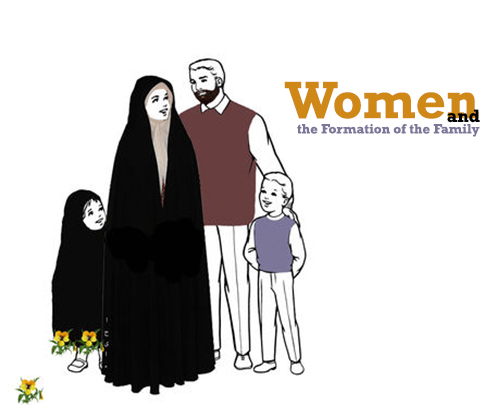In Arabia, woman was a commodity, counted in the wealth of the father, husband
or son; and after death she was inherited like the other possessions and became
the property of the descendents.
It was a disgrace to have a daughter, and in some tribes the family buried this
shameful thing with their own hands (see XVI: 59). In Iran, also, the form of
class society did not bring anything better for women.
In Greece, woman was a creature of perpetual filthiness, a child of Satan,
similar to an animal. In India, throughout her life, she was under the control
of her father, husband or son, and had to address her husband as god, master and
lord, and the death of her husband she had no right to take another husband. The
revolting custom of Sati, the burning of the widow alive with the funeral pyre
of her husband, was also practiced at that time.
In Japan, as well, woman was under the control of her father, husband or son for
the whole of her life, and the daughter had no share in inheritance.
In China the father was master of the house and had so much power that he could
sell his wife and children into bondage and slavery, and sometimes he even had
the right to kill them. On top of this, daughters had no esteem and sometimes
they were left in the desert to be the prey of the wild pigs.
The Romans also considered women to be the incarnation of evil and as harmful
spirits, and kept them like children under their control.
It was, was sunk in darkness, decline and oppression. Throughout the whole of
the world, no glow or gleam of light met the eye, and although the desire for
goodness and virtue still flickered in the depths of the heart of human nature
covered by a dark opaqueness, it had been almost extinguished on the one hand in
the blackness and gloom of humiliations, passions and oppression, and on the
other hand in the prominent features of poverty and wretchedness. It could not
illuminate the path for the seekers after light, purity and felicity. A darkness
like a thick heavy cloud in the sky had submerged the daily life of all
societies of the time in a deep sleep; and a horrible, powerful obscurity
reigned which only the rising of a radiant sun could disperse.
This darkness was more overpowering in Arabia invaded to the depths of
degradation and debasement.
Hear what Imam Ali (A.S.) says about those days: ". . . You people of Arabia
followed the worst religion; you dwelt amongst rough stones and poisonous
serpents. You drank putrid water and ate filthy food. You shed the blood of one
another and played no heed to relationships. Idols were established among you,
and sins clung to you." (Nahjul aI-Balaghah, Sermon 26).
* Source: alhassanain.com


















